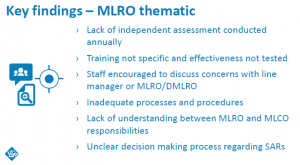This update follows the first-two-ever prosecutions of financial institutions in Jersey for the offence of INTERMEDDLING under the Probate (Jersey) Law 1998 (“the Probate Law”)
By Article 23(1) of the Probate (Jersey) Law 1998, a person guilty of an offence is liable to a fine or to imprisonment for a term not exceeding twelve months or both.
Jersey firms are warned to review their procedures within their businesses relating to probate procedures.
The TWO cases being
- November 2018 – The Attorney General v Abu Dhabi Commercial Bank PJSC, Jersey Bank, the Royal Court found a bank guilty of committing a criminal offence and fined the bank for not obtaining the necessary authorisation before transferring the assets of a deceased client out of the jurisdiction. The Court fined the Bank £25,000 and an extra £2,085 in compensation.August 2019 – Standard Bank Jersey
- Limited was fined £20,000 after it admitted allowing a woman to use her deceased partner’s bank account to pay her rent and shopping bills. Standard Bank Jersey Limited appeared in the Royal Court where it was sentenced for allowing the woman to access the account – which it accepted should have been immediately suspended – without obtaining paperwork required by the Probate Law
ATTORNEY GENERAL’S GUIDANCE INTERMEDDLING IN ESTATES OF DECEASED PERSON
1) These Guidelines are produced in order to clarify when it is necessary for the Registrar of Probate to refer a case of suspected intermeddling to the Attorney General.
THE PRESENCE OF ANY OF THE FOLLOWING FACTORS SHOULD LEAD TO A REFERRAL:
2) The amount concerned is in excess of £10,000.
3) There are a number of persons entitled to a share of the estate and those individuals’ interests have been prejudiced by the intermeddling.
4) The person who has intermeddled is a member of a profession, membership of which would suggest either awareness of the requirements under the Probate (Jersey) Law 1998 (as amended) or awareness that such requirements are likely to exist.
5) It appears that the person who has intermeddled has acted in bad faith.
6) The intermeddling has come to light through a person other than the intermeddler.
CASES INVOLVING ALL OF THE FOLLOWING FACTORS WILL GENERALLY NOT NEED TO BE REFERRED TO THE ATTORNEY GENERAL:
7) The amount concerned is less than £10,000; and
8) The person who has intermeddled has acted in good faith and there is no indication that the intermeddling was a deliberate attempt to circumvent the Law; and
9) The person who has intermeddled is the sole heir or beneficiary or if there is more than one heir or beneficiary, the others have indicated their approval either in advance or retrospectively, of the actions of the person who as intermeddled; and
10) The person who has intermeddled is a person with no prior experience of legal matters. Those with no prior experience of legal matters cannot be expected to have the same level of knowledge about the probate process as those who have had prior experience; and
11) There is no ground for supposing that the intermeddling was deliberately done to advance an ulterior motive, for example, to deliberately gain some advantage (financial or otherwise) or to damage the interests of a third party; and
12) The matter has only come to light because the person who has intermeddled has informed someone of what has happened, for example, where an executor has brought attention to their own intermeddling.
13) There may be circumstances where Officers of the States of Jersey Health and Social Services Department, Officers of the States of Jersey Housing Department, Officers of the States of Jersey Police, banks or other financial organisations and private nursing homes intermeddle with some part of the moveable estate of a deceased person as a direct result of providing appropriate care and services to that person. In such circumstances, the presence of ALL the following factors shall mean that the case will not generally need to be referred to the Attorney General.
14) The part of the estate concerned comprises of a cash amount of no more than £500.00 and/or personal effects of minimal value and/or wedding rings and/or engagement rings.
15) The person who has intermeddled has written notification in advance indicating the approval of their proposed actions from at least one of the heirs or beneficiaries of the estate and that approval shall contain acknowledgement that there are no known heirs or beneficiaries who they may believe might object to the action taken.
16) The person who has intermeddled has acted reasonably and in the course of their duties.
17) The person who has intermeddled has acted in good faith and there is no ground for supposing that the intermeddling was deliberately done to gain some advantage (financial or otherwise) or to damage the interests of another party.
18) The above factors are purely for guidance and the Registrar of Probate is reminded that each case will turn on its own facts.
19) If the Registrar of Probate is in any doubt as to whether to refer a matter to the Attorney General, then the matter should be so referred. March 2014
To read more click here and here






